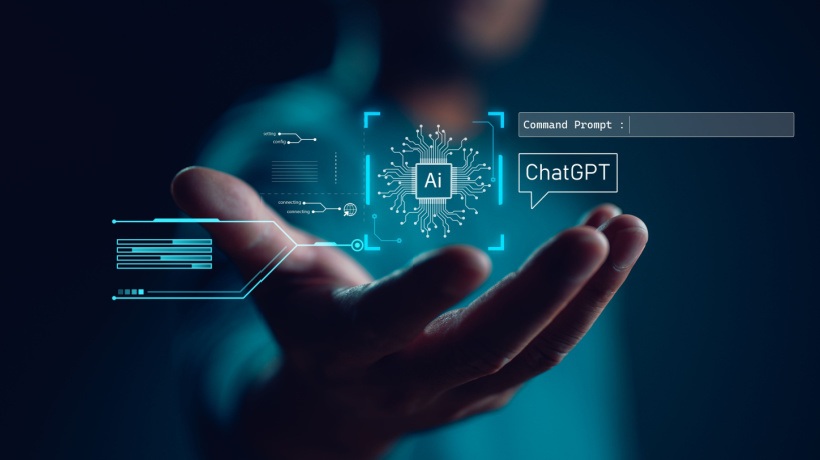Technology Is Changing How We Live, Work, And Play
Technology continues to advance at what seems like an ever-increasing pace, changing how we live and interact with the world around us. Today’s learning professionals face the challenges of staying ahead of this curve and tracking the technologies that are shaping the future of organizational learning, while at the same time recognizing technologies that may be more of a passing fad.
It can all feel overwhelming, but if you focus on a few key themes, you can be well prepared for the disruptions and opportunities technological change can cause.
1. It’s Not About “Learning Technologies,” It’s About “Learning And Technology”
We throw around the phrase “learning technologies” a lot. Every time I hear that phrase used, I can’t help but hear the voice of Inigo Montoya from the classic film, The Princess Bride, “You keep using that word. I do not think it means what you think it means.”
If you spent a few minutes right now making a list of technologies you use in your work, chances are you would not have built a list of Learning technologies. In most industry conversations about learning technologies, what we’re really talking about are the Education or Training technologies that we use in our work.
That doesn’t make the technologies any better or worse. If you visit an industry expo, you’ll find dozens of suppliers providing invaluable technologies and services that enable us to provide support and learning opportunities to our organizations. But it’s critical to understand the differences these technologies play in our work, and the role technology plays more broadly in how we learn. That context is important as we look to the future.
It also brings us to the next key theme.
2. If You Want To Understand How Technology Will Change How We LEARN, Understand How Technology Is Changing How We LIVE
Picture this scene: You’re out to dinner with your friends and/or family. It’s the best dinner party ever. The food and drinks are delicious and more importantly, the conversation is vibrant and flowing; fast and furious. Suddenly, someone asks a question that no one at the table knows the answer to, and it brings the table to a silence.
Most of us have likely experienced a scenario like this in our lives. What’s remarkable is that no matter what the question was or who is at the table, chances are very likely that the silence is broken the same way. Someone at the table pulls out their phone and says, “I’ll Google it.” This scenario is very representative of the digital world we live in. It’s a world where we walk around with the near-limitless knowledgebase of the internet and a tool to instantly mine it for answers, and it fits comfortably in our pockets. It’s so normalized into our culture that we take for granted how amazingly transformative it is.
I think it’s important to revisit the dinner scenario and look at something that is never said to break the silence: “That’s a great question. Let me log into the LMS to get the answer.”
I want to be clear, I’m not presenting that as a commentary on Learning Management Systems and the critically important role they play in our work. I share that example because the LMS is an education and training technology, and the scenario I am sharing isn’t about education and training, or even learning. It’s about how we live our daily lives in an increasingly digital world.
You may take issue with me saying this scenario isn’t about learning. After all, this is a very good example of the power of self-directed learning. I both agree and disagree with that assessment. Yes, seen through the lens of our profession, this was an example of someone taking control of their own learning without having someone provide a formal educational or training resource. But no one who instinctively pulls out their phone to Google an answer consciously thinks, “I’m going to use my phone to find the answer because I’m a self-directed learner.” Self-directed learning is our jargon. It’s not a phrase that resonates in everyday life unless it’s linked to intentional learning behaviors. What we call self-directed learning has a much simpler label in everyday life: problem-solving.
Technology is increasingly enabling a self-service world. We now have resources and tools that empower us to accomplish tasks on our own that we have historically needed to outsource to those that had already developed the required knowledge and skills. In the past when I’ve had an issue with the plumbing in my house, my default was to call a plumber. Now the default is to pull up YouTube. That’s what self-directed learning looks like in the real world: people using the resources available to them in an increasingly digital world to solve problems on their own, right in the moment (even the simple problem of “not knowing” something).
It’s amazing how quickly this digital ecosystem of resources has normalized this emergence of self-service behaviors in our daily lives. It’s this normalization, and the constant awareness that we can access information to solve problems in the moment of need, that brings me to the final theme I want to explore.
3. Learning And Work Are No Longer Two Separate Activities
Training and education are traditionally disruptive activities, at least in the context that they required you to stop doing whatever else you were doing so you could participate in the education or training experience.
That model is still important for in-depth education and training needs, but it doesn’t satisfy the need of people who are increasingly accustomed to solving performance problems on their own, in the moment, while actually working.
Most training experiences require an interruption of work, but that should no longer be our default solution. Digital tools are increasingly enabling us to insert support into the flow of the work people are already doing, better matching their natural problem-solving behaviors and being less disruptive to workplace productivity. It’s why workflow learning continues to grow as a buzzword and emerging discipline in Learning and Development.
Technology is forever changing the way we live, work, and play in our daily lives. The themes I’ve described here can help Learning and Development professionals put these changes into context, and to prepare ourselves to help shape what’s next for our field.
Explore These Themes In Depth At The DevLearn Digital Experience
DevLearn has always been a conference that helps drive innovation for individuals, organizations, and our industry. The Learning Guild is excited to be hosting our first DevLearn Digital Experience on October 19-30. We invite you to join us for the conversations that will help shape what’s next for Learning and Development.








